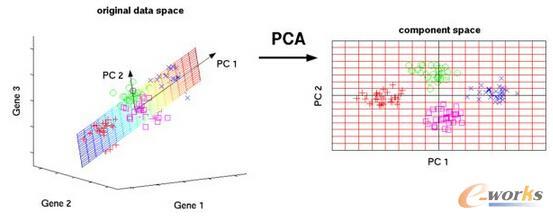Principal component regression (PCR) is a popular technique for fixed-design error-in-variables regression, a generalization of the linear regression setting in which the observed covariates are corrupted with random noise. We provide the first time-uniform finite sample guarantees for (regularized) PCR whenever data is collected adaptively. Since the proof techniques for analyzing PCR in the fixed design setting do not readily extend to the online setting, our results rely on adapting tools from modern martingale concentration to the error-in-variables setting. We demonstrate the usefulness of our bounds by applying them to the domain of panel data, a ubiquitous setting in econometrics and statistics. As our first application, we provide a framework for experiment design in panel data settings when interventions are assigned adaptively. Our framework may be thought of as a generalization of the synthetic control and synthetic interventions frameworks, where data is collected via an adaptive intervention assignment policy. Our second application is a procedure for learning such an intervention assignment policy in a setting where units arrive sequentially to be treated. In addition to providing theoretical performance guarantees (as measured by regret), we show that our method empirically outperforms a baseline which does not leverage error-in-variables regression.
翻译:暂无翻译



